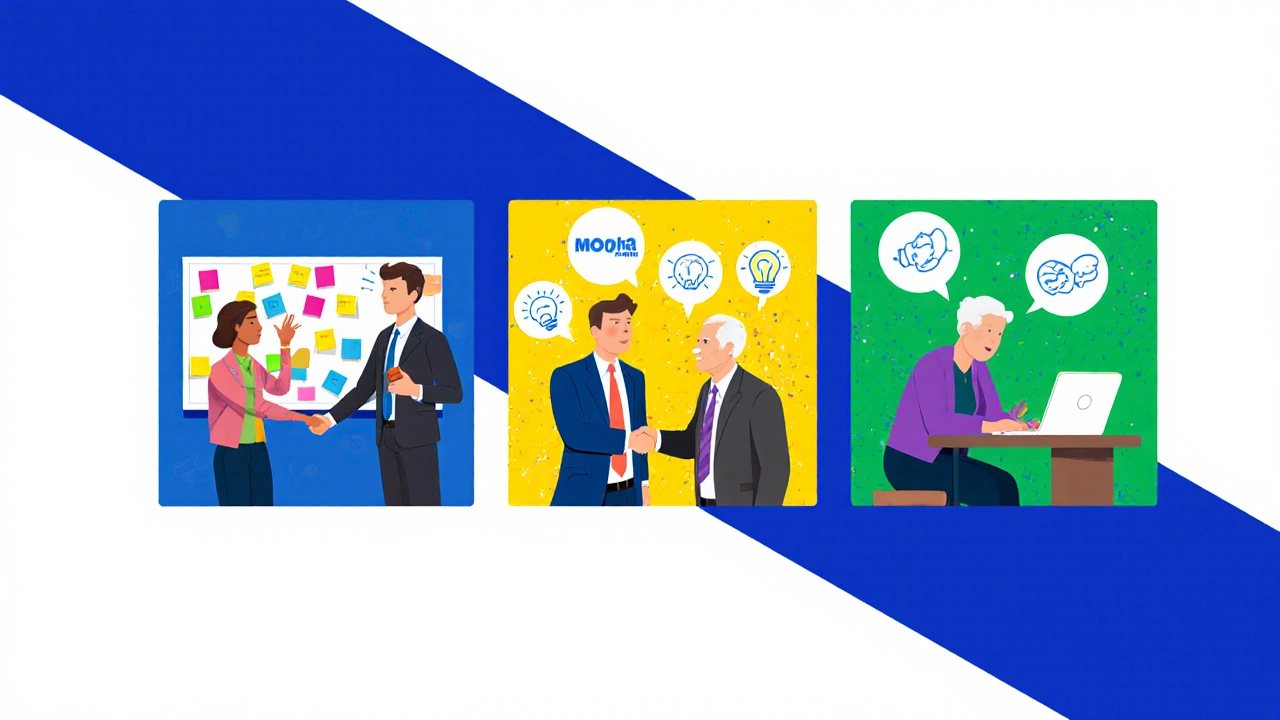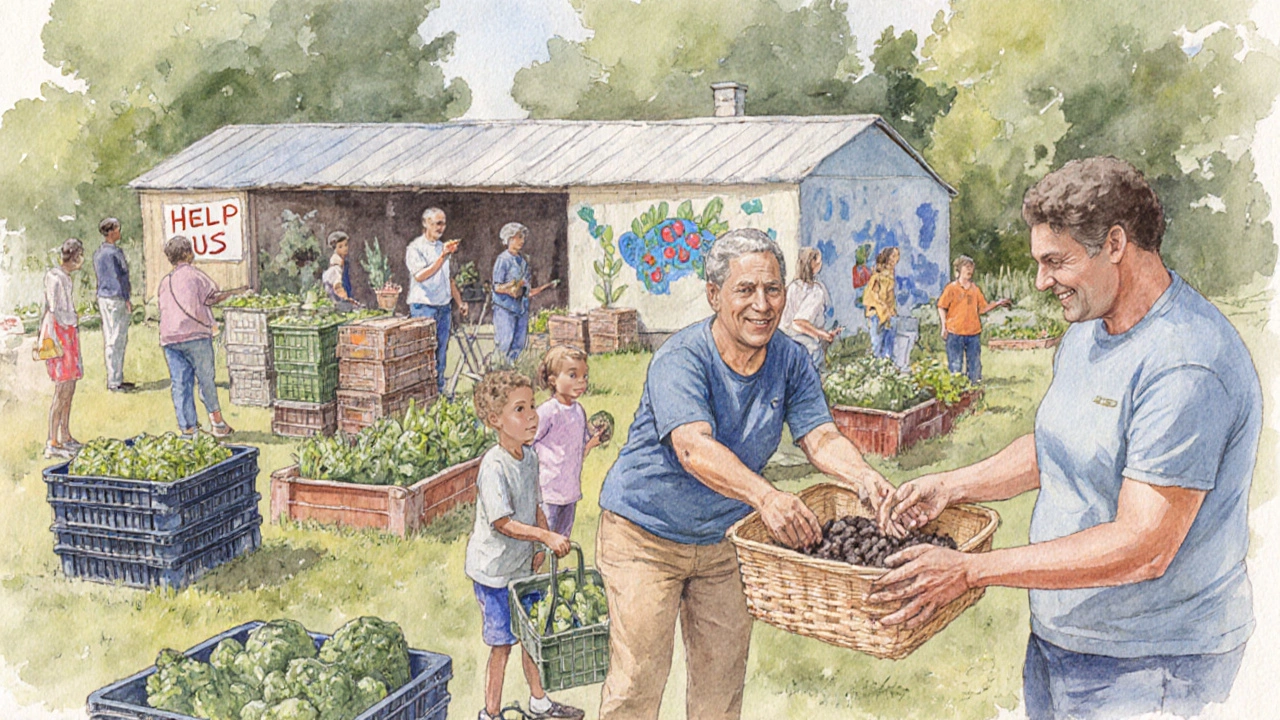Who Gains More From Volunteering? Understanding the True Benefits
 Oct, 18 2025
Oct, 18 2025
Volunteer Benefits Calculator
How Does Your Background Impact Your Volunteering Benefits?
Select your demographic group to see which benefits you'll likely gain from volunteering.
Volunteering is a voluntary, unpaid activity where individuals or groups contribute time and skills to help a cause, organization, or community. When you wonder who truly gets the most out of this effort, the answer isn’t as simple as picking a single side. Both the helpers and the helped walk away wiser, healthier, and better connected. Below we break down the multiple layers of volunteering benefits and explore which groups tend to reap the biggest rewards.
Why People Choose to Volunteer
Motivation behind volunteering falls into three broad buckets: personal fulfillment, social connection, and civic responsibility. Many volunteers cite a desire for Personal development - learning new skills, gaining confidence, or discovering hidden passions. Others look for Social capital, the network of relationships that can lead to future opportunities. A third group sees volunteering as a way to give back, strengthening the Community impact and supporting the mission of a Nonprofit organization they care about.
Benefits to the Volunteer
Below are the most common ways volunteers themselves grow:
- Skill acquisition: Whether you’re learning how to organize a fundraiser, manage a food bank, or mentor a teen, you gain practical abilities that translate to the workplace.
- Career advancement: Recruiters value real‑world experience. A well‑written CV entry on volunteer work can boost interview odds by up to 30% (source: Australian Job Outlook 2024).
- Mental health: Studies from the University of Melbourne show a 20% reduction in depressive symptoms among regular volunteers.
- Networking: Volunteering puts you in contact with professionals, community leaders, and like‑minded peers, expanding your personal and professional circles.
- Civic identity: Feeling part of a larger purpose improves overall life satisfaction and promotes long‑term civic engagement.
Benefits to Communities and Nonprofits
When volunteers step in, organizations receive:
- Expanded capacity: More hands mean bigger projects-think of a local shelter that can serve 15 extra families during holidays.
- Cost savings: Labor accounts for up to 40% of a nonprofit’s budget. Volunteer labor directly reduces expenses, allowing funds to be redirected to services.
- Diverse perspectives: Volunteers bring fresh ideas, often sparking innovation in program delivery.
- Community trust: When locals see their neighbors giving time, confidence in the organization rises, leading to higher donation rates.

Who Gains the Most? Comparing Different Groups
Not everyone gets the same level of benefit. Below is a quick snapshot of typical outcomes for various volunteer demographics.
| Group | Personal Development | Career Impact | Mental Health Boost | Community Influence |
|---|---|---|---|---|
| Students (15‑22) | High - hands‑on learning, leadership roles | Medium - internships & references | Medium - social belonging reduces stress | High - fresh ideas energize programs |
| Mid‑career Professionals | Medium - skill refinement, mentorship | High - networking leads to promotions or new careers | High - purpose combats burnout | Medium - experience guides strategic planning |
| Retirees | Low‑Medium - social engagement, lifelong learning | Low - less career relevance | High - combats loneliness and cognitive decline | High - institutional memory & trust building |
| Corporate Teams | Medium - teamwork outside office | Medium - CSR improves brand perception | Medium - shared purpose improves morale | High - larger resource pool for impact projects |
From the table, mid‑career professionals often see the biggest career impact, while retirees enjoy the strongest mental health boost. Students and corporate teams excel at driving community change.
Tips to Maximize Your Volunteer Impact
- Choose a role that matches your skill level. If you’re a graphic designer, look for NGOs needing visual content rather than unrelated admin tasks.
- Set clear, measurable goals. For instance, aim to mentor three youth for six months, then track outcomes.
- Reflect regularly. Journaling after each shift helps internalize lessons and spot growth areas.
- Leverage your network. Invite friends or colleagues to join-a larger team amplifies results.
- Seek feedback from the organization. Understanding their needs ensures your time is spent where it matters most.

Common Pitfalls and How to Avoid Them
Even well‑meaning volunteers can hit snags. Here’s what to watch out for:
- Over‑committing: Saying yes to every request leads to burnout. Stick to a realistic schedule.
- Skill mismatch: Doing tasks you’re not trained for can frustrate both you and the organization. Ask for proper training.
- Neglecting self‑care: Volunteering should enhance life, not dominate it. Balance with hobbies and rest.
- Ignoring cultural context: In Australia, community groups often have specific protocols. Take time to learn local customs.
Key Takeaways
- Volunteering creates a win‑win: volunteers gain personal, professional, and mental health benefits while nonprofits expand capacity and reduce costs.
- Different groups derive different primary gains-students grow leadership, professionals boost careers, retirees improve wellbeing.
- Choosing the right role, setting goals, and reflecting on experiences maximizes both personal growth and community impact.
- Avoid over‑commitment and skill mismatches to keep the experience rewarding.
- In Melbourne and across Australia, volunteer work continues to be a powerful pathway for social connection and civic pride.
Frequently Asked Questions
Does volunteering really improve mental health?
Yes. Research from the University of Melbourne in 2024 found that regular volunteers reported a 20% reduction in depressive symptoms and higher life satisfaction scores compared to non‑volunteers.
Can I count volunteer hours on my résumé?
Absolutely. List the organization, role, and key achievements. Highlight transferable skills like project management, communication, or fundraising to catch recruiters’ eyes.
What type of volunteer work suits retirees?
Roles that emphasize social interaction and mentorship work well-storytelling workshops, senior‑to‑youth tutoring, or helping at community centers. These activities combat loneliness and keep cognitive skills sharp.
How much time should I commit each week?
Start with 2-4 hours per week. It’s enough to feel impact without overwhelming your schedule. Adjust as you gauge energy and interest.
Is volunteer work recognized by Australian universities?
Many universities award credit for structured community service. Check your institution’s guidelines-often you’ll need a supervisor’s verification and a reflective statement.